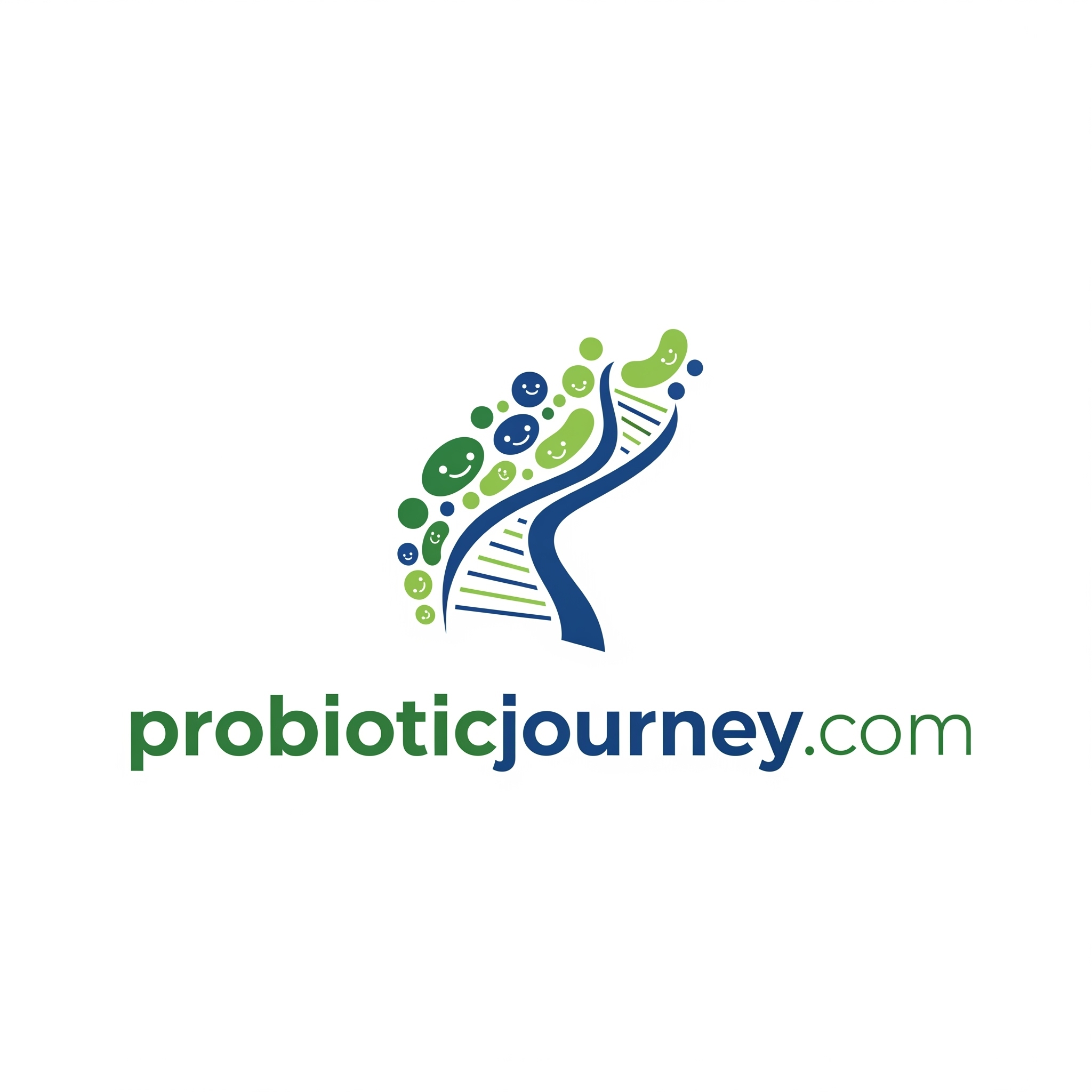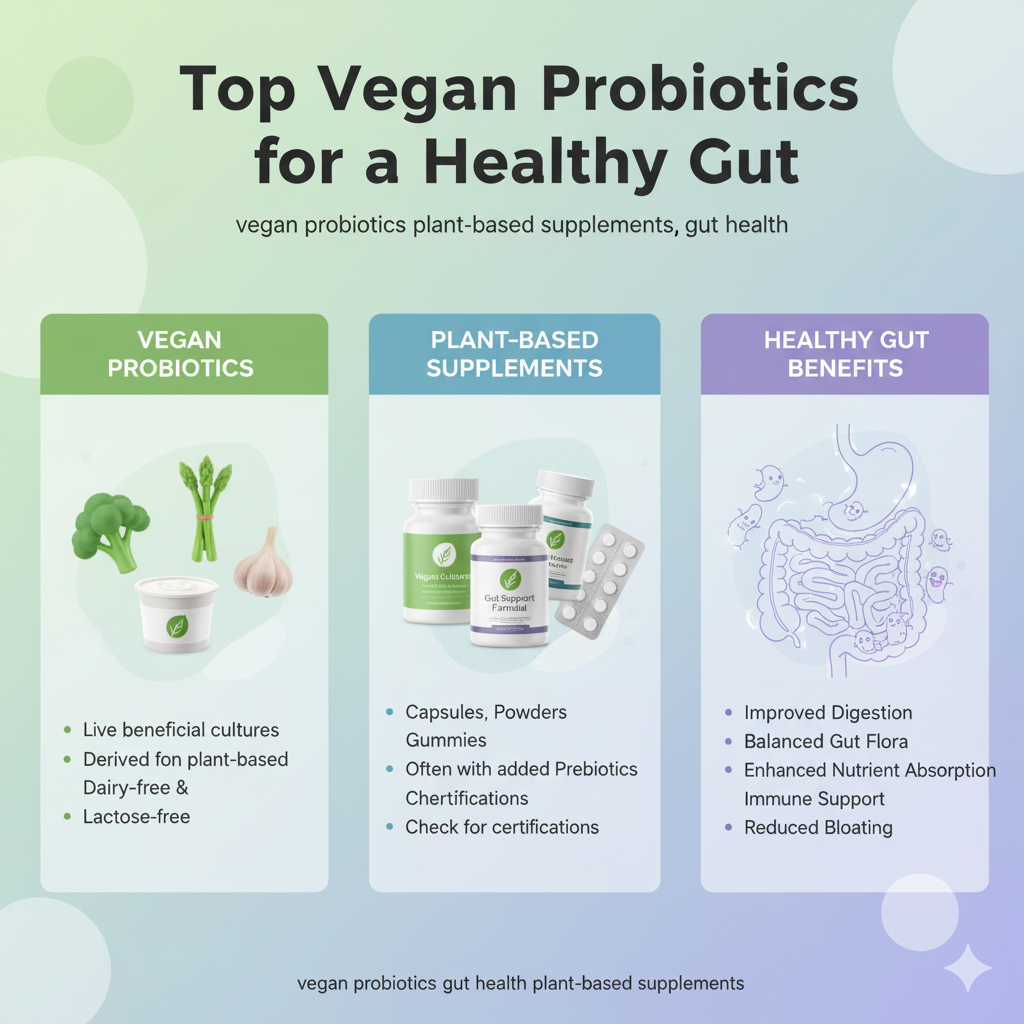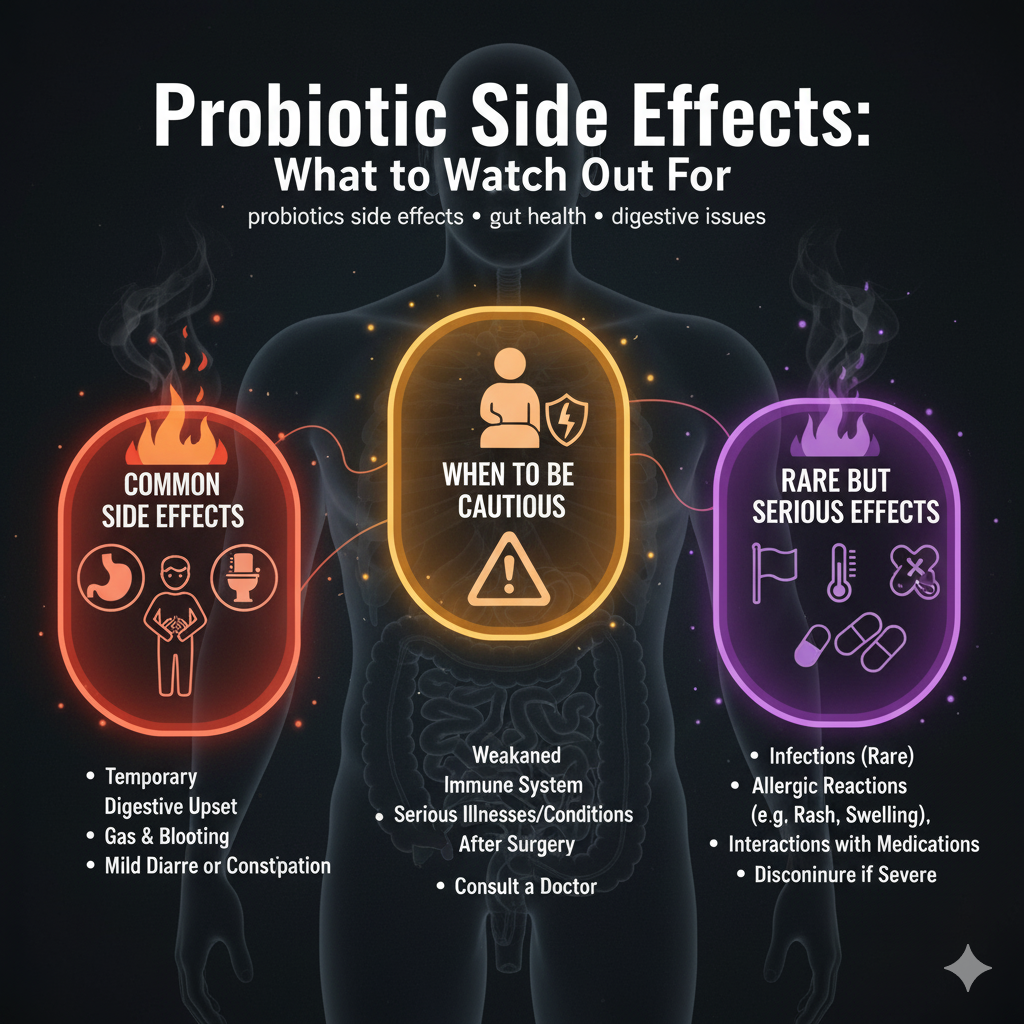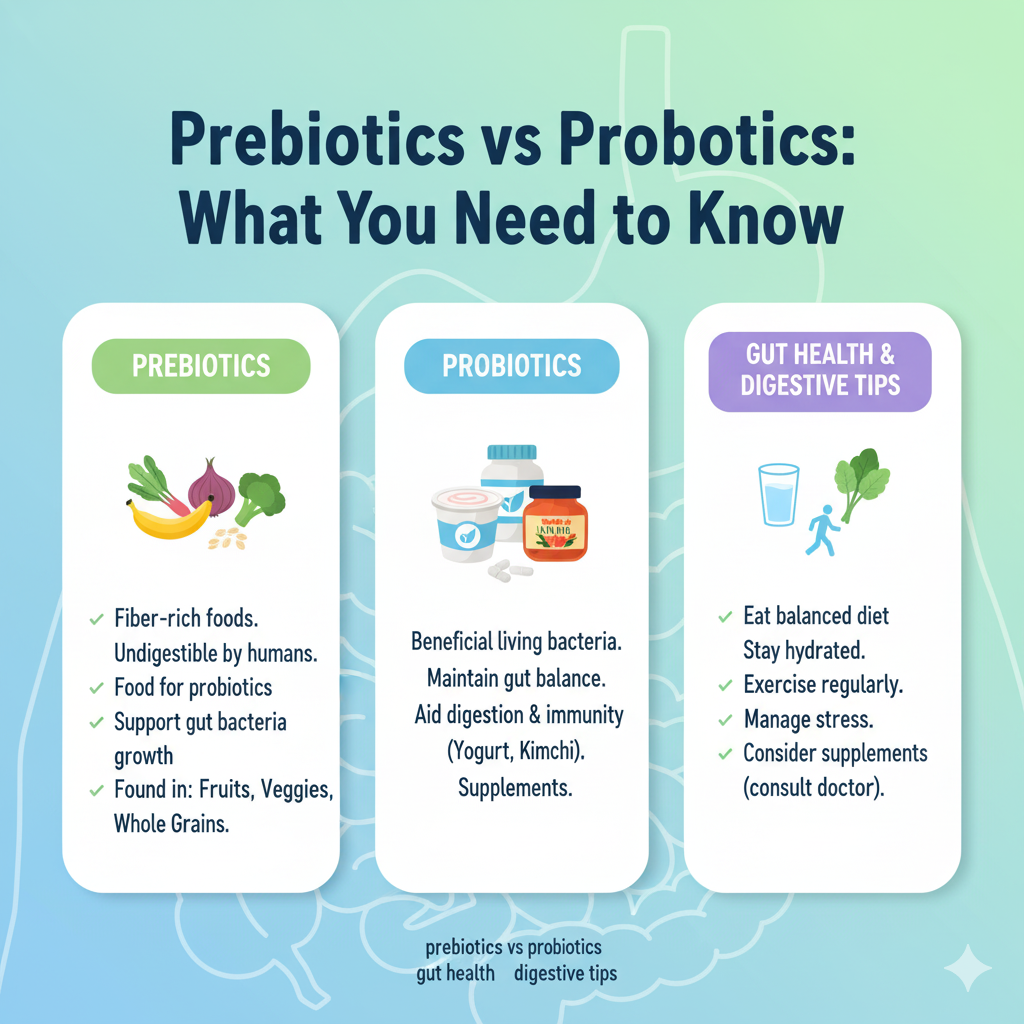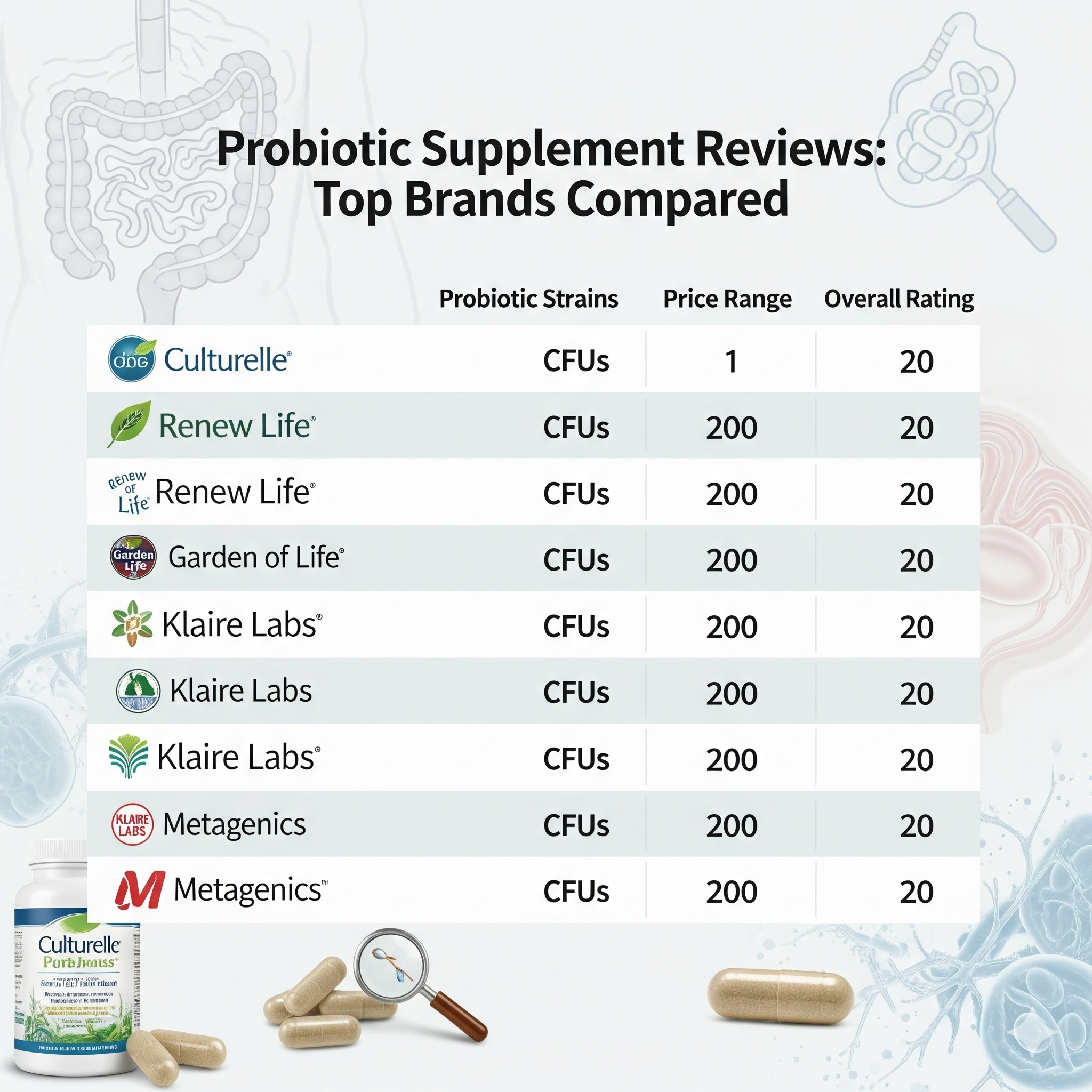Gut health is increasingly recognized as central to our overall well-being. A balanced gut microbiome supports digestion, immunity, mood, and even metabolic health. For people following a plant-based or vegan diet, ensuring probiotic intake (and doing it right) can be especially important, since many conventional probiotics are grown on media containing dairy, or may have gelatin capsules, etc.
This article explores what vegan probiotics are, why they matter, how to pick high-quality ones, and some of the best vegan probiotic options available.
What Are Vegan Probiotics?
“Vegan probiotics” refers to probiotic products (or probiotic-rich foods) that satisfy the following:
- The live microorganisms (bacteria or yeasts) used are cultured on non-animal media (no milk, casein, whey, or animal extracts in production).
- The final product (capsule, tablet, powder, liquid, etc.) uses vegan ingredients (no gelatin, animal by-products, etc.).
- They are free from animal-derived additives and ideally certified vegan.
Vegan probiotic foods also exist — fermented vegetables (sauerkraut, kimchi), plant-based yoghurts made from soy, oat, almond, coconut, etc., water kefir, kombucha, and other fermented non-dairy foods.
Why Vegan Probiotics Are Important
Some of the reasons people choose vegan probiotics include:
- Dietary preference or ethical choice — avoiding animal-derived ingredients.
- Allergy or intolerance — dairy proteins can trigger reactions in sensitive individuals.
- Microbiome diversity — consuming a variety of probiotic strains (from foods and supplements) helps maintain resilience and adaptability of gut flora.
- Avoiding unwanted additives — many supplements have animal gelatin, non-vegan fillers, or non-vegan capsules. Vegan options typically avoid these.
Also, many of the most well-researched probiotic strains are available in vegan forms. For example, strains like Lactobacillus acidophilus, Lactobacillus rhamnosus, Bifidobacterium breve, Saccharomyces boulardii, Bacillus coagulans, etc. are commonly included in vegan probiotic products. optibacprobiotics.com+2The Fast Vegan Brand+2
Key Factors in Choosing a Quality Vegan Probiotic
To get maximum benefit, it’s not enough just to choose anything labeled “vegan”. Here are what to look for:
| Feature | Why It Matters |
|---|---|
| Strain specificity (not just “Lactobacillus blend”) | Different strains have different effects (digestion, immune modulation, anti-inflammatory, etc.). Knowing species and ideally strain ID helps you choose based on need. optibacprobiotics.com+1 |
| CFU (colony-forming units) | Tells you how many live microorganisms are in a serving. Needs to be enough to survive transit through stomach acid and colonize (or at least exert a beneficial effect). |
| Stability & shelf life | Some probiotics need refrigeration; others are shelf stable. Vegan products that are shelf stable are more convenient. The Fast Vegan Brand+2top5best.com+2 |
| Additives & delivery form | Vege capsules, liquid, gummy, powder — check if the capsule is vegan, if there are sugars or gelatin, etc. Also check if there are prebiotics included. The Fast Vegan Brand+1 |
| Number of strains (single vs multi-strain) | Multi-strain formulas tend to cover more bases: different strains may help different parts of the gut, or help in immune, digestion, etc. But more strains doesn’t always mean “better” if they’re irrelevant or poorly chosen. |
| Clinical evidence | Prefer products (or strains) with human trials, for the type of outcome you want (digestion, immune support, reducing bloating, etc.). |
| Vegan certification (if important) | Labels such as “certified vegan”, “non-dairy”, “plant-based”, etc., ensure integrity. |
Best Vegan Probiotic Strains to Know
Here are some probiotic strains commonly used in vegan probiotics, and what they are good for:
- Lactobacillus acidophilus — among the most studied lactobacilli; supports digestion, reduces bloating. optibacprobiotics.com+1
- Lactobacillus rhamnosus — often used for immune support, digestive comfort. Clean Green Simple+1
- Bifidobacterium breve — helpful in infants and children, also for general gut health. optibacprobiotics.com+1
- Bacillus coagulans — spore-forming, tends to survive stomach acid better; useful in some vegan formulas. FindThisBest+2optibacprobiotics.com+2
- Saccharomyces boulardii — a yeast probiotic, useful especially for antibiotic-associated issues and occasional digestive disturbances. Vegan in many formulations. optibacprobiotics.com+1
Vegan Probiotic Foods
Don’t forget that food sources are often the best way to get probiotics (and prebiotics). Some vegan foods rich in probiotics:
- Kimchi — spicy fermented cabbage and vegetables. HappyCow
- Sauerkraut — fermented cabbage, rich in lactic acid bacteria. HappyCow
- Plant-based yoghurts that are labelled “contains live cultures” — soy, coconut, almond, oat yoghurts. HappyCow
- Water kefir and some coconut-based kefirs (those using plant milk). HappyCow+1
- Kombucha — fermented tea with live cultures. HappyCow
These give you not just probiotics but also fibre, vitamins, minerals etc., which all help maintain a healthy gut ecosystem.
Top Vegan Probiotic Supplement Options
Here are some well-reviewed vegan probiotic supplements (as of 2025) along with key features, pros and cons. These are good places to start; always check labels and, if possible, consult with a healthcare professional.
| Supplement | Key Features | Pros | Things to Watch |
|---|---|---|---|
| DEVA Vegan Probiotic with FOS Prebiotics | 2 billion CFU, non-dairy/gluten free, naturally shelf stable, includes FOS (fructooligosaccharides) as prebiotic. top5best.com+2Amazon+2 | Good for mild support, stable without refrigeration, vegan certified. | Lower CFU count than more “high potency” products; may need more frequent dosage. |
| Garden of Life Dr. Formulated Probiotics Once Daily Men’s | ~50 billion CFU, multiple strains, designed for men’s health, vegan friendly, non-GMO. ThreeReviews | High potency; targeted formulation. | Cost may be higher; check which strains are included to match your needs. |
| Ora Organic Trust Your Gut Probiotics + Prebiotics | 6 strains, ~16 billion CFU per serving, gluten/soy/nut free, vegan. livingmyveglife.com | Good mid-range option; includes prebiotics; gentler dose. | May not be sufficient for people with severe digestive issues; fewer strains compared to some high-strain formulas. |
| Mary Ruth’s Organic Liquid Probiotic | 12 live strains, USDA Organic, vegan, gluten-free, liquid form. momygram.com+2The Fast Vegan Brand+2 | Easy to take if you prefer not swallowing capsules; good strain diversity. | Liquid form may require refrigeration; measuring dose precisely; possibly higher cost per CFU. |
| Renew Life Ultimate Flora / Extra Care Probiotics | Many strains; high CFU counts in some versions; non-GMO and vegan friendly versions exist. The Fast Vegan Brand+1 | Good value for potency; reputable brand; variety of formulations. | High CFU sometimes not needed for mild issues; may cause temporary gas or bloating during adaptation. |
| Hum – Gut Instinct Probiotic | ~25 billion CFU, 10 different strains, clean/safe list for additives, vegan capsules. Keeping the Peas+1 | Balanced high potency; reputable lab testing; good strain mix. | Price; possible side effects as gut flora adjusts. |
How to Use Vegan Probiotics Effectively
To maximize benefit, follow these usage tips:
- Start slowly — if you haven’t used probiotics recently, begin with lower doses to let your gut adapt, reducing risk of bloating, gas.
- Take with food (often a meal with a bit of fat) — many probiotics survive stomach acid better if food buffers them.
- Pair with prebiotics — feeding the good bacteria helps them colonize better. Foods like garlic, onions, asparagus, leeks, oats, beans, bananas are helpful. Some supplements include prebiotics.
- Be consistent — daily use over weeks is necessary to see benefit. Effects accumulate.
- Store properly — even shelf-stable options have expiration dates; avoid heat, moisture, direct sunlight.
- Monitor your response — discomfort, loose stool, or gas at first might happen; if severe or persistent, stop and consult a professional.
Possible Considerations / Side Effects
- Some people experience mild digestive upset (gas, bloating) when beginning probiotics. This usually resolves after a short adjustment period.
- If you have compromised immune function or certain serious medical conditions, probiotics (especially high CFU or certain strains) might not be safe without medical supervision.
- Because supplements are not as tightly regulated as pharmaceuticals in many countries, quality can vary — cross-contamination, inaccurate CFU listings, etc. Choose trusted brands that provide transparency.
- Some “vegan” products may still use non-vegan growth media or ingredients in minor portions (e.g. additives, coatings) unless fully certified.
Final Thoughts
Vegan probiotics are a highly viable and often ideal option for supporting gut health without compromising dietary ethics, allergies, or intolerances. With thoughtful selection — the right strains, sufficient CFU, proper form and good lifestyle support — you can get many of the same benefits traditionally associated with dairy-based or standard probiotics.
If you follow a vegan diet, combining probiotic supplements (or probiotic foods) with prebiotic-rich whole plant foods, staying hydrated, getting good sleep, and managing stress will help cultivate a robust gut microbiome.
